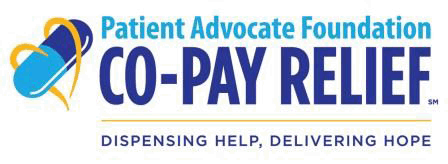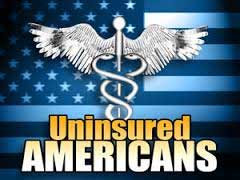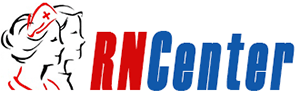![]() Advocacy is the Heart and Soul of Nursing Profession. Whether or not you are ill, managing your health can be confusing and overwhelming. We the nurses want to make sure you get the best care possible. We are also trying to make HealthCare affordable to all. Feel Free to use the Resources below to lower your health-related expenses:
Advocacy is the Heart and Soul of Nursing Profession. Whether or not you are ill, managing your health can be confusing and overwhelming. We the nurses want to make sure you get the best care possible. We are also trying to make HealthCare affordable to all. Feel Free to use the Resources below to lower your health-related expenses:
![]() As more patients find themselves struggling to meet the out-of-pocket expenses associated with their medication and pharmaceutical needs, many pharmaceutical manufacturers have set up patient assistance programs that serve as resource centers for patients.
As more patients find themselves struggling to meet the out-of-pocket expenses associated with their medication and pharmaceutical needs, many pharmaceutical manufacturers have set up patient assistance programs that serve as resource centers for patients.
The pharmaceutical manufacturer of your prescribed medication is a great place to start when looking for assistance and this page will connect you with many of the major manufactures and their support programs.
AMGEN Assist
www.amgenassist.com/index.jsp
Call: 1-888-4Assist (427-7478)
Live support is available Monday-Friday, 9:00AM – 8:00PM EST
Celgene Patient Support
www.celgenepatientsupport.com
Live support is available Monday-Friday, 8:00AM – 7:00PM EST
Call:1.800.931.8691
Email: patientsupport@celgene.com
Fax:1.800.822.2496
Genentech Access Solutions
www.genentech-access.com/
Call: 1-866-4ACCESS (422-2377)
Live support is available Monday-Friday, 6:00AM – 5:00PM PSTGenentech
Endo Pharmaceuticals Inc., patient assistance program
http://www.endo.com/about-us/our-commitment
Call: 1-866-824-4747
Fax: 1-800-889-0353

https://www.visitspconline.com/
Live support is available Monday-Friday, 9:00AM – 8:00PM EST
Call: 1-888-visitSPC (847-4877)
Fax: 1-888-847-1797
Boehringer Ingelheim Cares Foundation Patient Assistance Program
http://us.boehringer-ingelheim.com/our_responsibility/patients-families.html
Call: 1-800-556-8317
Boehringer Ingelheim Cares Foundation Patient Assistance Program
http://us.boehringer-ingelheim.com/our_responsibility/patients-families.html
Call: 1-800-556-8317
Otsuka Patient Assistance
http://otsuka-us.com/Resources/Pages/PatientAssistance.aspx
For ABILIFY® (aripiprazole)1 Patient Assistance
Call: 1-800-736-0003
www.bmspaf.org
For ABILIFY MAINTENA® (aripiprazole)2 Patient Assistance
Call: 1-855-627-7873
www.assure-programs.com
For SAMSCA® (tolvaptan)3 Patient Assistance
Call: 1-866-758-7069
Janssen Patient Assistance - Johnson & Johnson Patient Assistance Foundation, Inc.
http://www.jjpaf.org/
Call: 1-800-652-6227
Fax: 1-888-526-5168
Live support is available Monday-Friday, 9:00AM – 6:00PM EST
Pfizer Rx Pathways - Pfizer Patient Assistance Programs
www.pfizerrxpathways.com
Call: 1-866-706-2400
Millennium Patient Assistance Program
www.velcade.com/Paying-for-treatment
Call: 1-866-VELCADE (835-2233), option 2.
Live support is available Monday-Friday, 8:00AM – 8:00PM EST
Because of high prices, 1/3 of People can't access the medicine they need.
If you are struggling to meet expenses associated with your medications and pharmaceutical needs, don't cut your pills in a half, instead, use the PharmacyChecker to cut the prices of your medications by up to 90% and save thousands !
PharmacyChecker is the only independent company that verifies U.S. and international online pharmacies and compares prescription drug prices. Their verifications and price comparisons have been referenced by AARP Magazine, the New York Times, the Wall Street Journal, and many others.
The Patient Advocate Foundation (PAF) provides direct financial assistance to insured patients who meet certain qualifications to help them pay for the prescriptions and/or treatments they need. This assistance helps patients afford the out-of-pocket costs for these items that their insurance companies require.
 |
The program offers many sophisticated online tools to ensure the application process is as streamlined as possible for patients, providers and pharmacy representatives, including 24-hour web-based portals, electronic signature, document upload and bar code fax routing capabilities.
![]() Healthcare Blue Book provides a service to combat increasing prices in health services due to factors like rising insurance premiums, price gouging, and fraud. With a decisive list of fair pricing at hand, consumers are able to avoid potential follies in the confusing world of doctor comparisons. Pricing for common procedures, tests, medications, and other services are easy to find and are search-able in the expansive database. Healthcare Blue Book is also used by several health insurance companies, including Ehealthinsurance, to assist customers in locating medical services.
Healthcare Blue Book provides a service to combat increasing prices in health services due to factors like rising insurance premiums, price gouging, and fraud. With a decisive list of fair pricing at hand, consumers are able to avoid potential follies in the confusing world of doctor comparisons. Pricing for common procedures, tests, medications, and other services are easy to find and are search-able in the expansive database. Healthcare Blue Book is also used by several health insurance companies, including Ehealthinsurance, to assist customers in locating medical services.
How are the "fair" prices determined? Generally, the fair price is the cost that most insurance providers would cover in full for a medical service. On top of that the fair price is determined from industry data, consumer data, and other employer information from throughout the United States.
The Healthcare Blue Book website also provides free patient education in how to use the website, apply it to the medical system, and managing overall healthcare expenses.
 Make Healthy Choices
Make Healthy Choices
Many chronic health conditions can be prevented and/or managed better by making healthy choices including:
- Maintaining a healthy diet
- Getting Adequate Excersize
- Reducing Stress
- Getting Enough Sleep
- Reducing Unhealthy Habits (i.e.: smoking, excessive alcohol intake, etc.)
- Always consult with your doctor before starting any exercise program or restrictive diet.
Getting Preventative Care
The Patient Protection Affordable Care Act includes the National Prevention Strategy, a plan that includes actions that public and private partners can take to help Americans stay healthy and fit. Its intention is to help move the nation away from a health care system focused on sickness and disease to one focused on wellness and prevention.
Now Most Prevention Tests Are Covered by Insurance...
If You Have Healthcare Insurance:
The Affordable Care Act contained a provision that allows consumers to access preventive services within their insurance plan at no cost. Insurers are now required to provide certain preventive services to the member/patient without collecting a co-payment, co-insurance or deductible, thus increasing the ability of many people to access life-saving screenings and preventative care. (*Insurance plans that have ‘grandfathered’ status may not be responsible for implementing these provisions).
This will make a big difference for people with Medicare who, like most Americans, tend to use preventive services at roughly half the recommended rate due to not being able to afford the coinsurance/co-pay once charged for these services. For example, only 43 percent of women with Medicare insurance coverage received a mammogram in 2008. Now with the passing of law, out-of- pocket costs on preventative care will be reduced in most instances.¹
Specific preventive services vary depending on your age or gender based on medically recommended and recognized guidelines. (Please see the adjacent column for a full list). Examples of preventative services covered at no cost include but are not limited to, blood pressure screenings, diabetes screening, cholesterol screening tests, many cancer screenings tests, including mammograms and colon cancer screening, counseling on such topics as quitting smoking, losing weight, eating healthy, treating depression, reducing alcohol use, getting routine vaccinations against diseases such as measles, polio, meningitis, flu and pneumonia shots, and vaccines to ensure healthy pregnancies and regular well-baby and well-child visits, from birth to age 21. Medicare covers screening and counseling for obesity to qualified Medicare beneficiaries. You should always refer to your health care certificate of coverage for a detailed description of what is covered, how it is covered, any special providers you must use. Your insurance company must provide you with a copy of your certificate of coverage upon request.
¹(New Release, Affordable Care Act prevention benefits increasing access, lowering costs for people with Medicare, March 16, 2011)
Getting Preventative Tests Covered When You are Not Insured:
 For those patients without insurance, there are resources available to help with covering the cost or reducing the out-of-pocket expenses for receiving certain preventative tests/screenings. Ideally, purchasing insurance would provide the overall coverage necessary should you develop a chronic condition.
For those patients without insurance, there are resources available to help with covering the cost or reducing the out-of-pocket expenses for receiving certain preventative tests/screenings. Ideally, purchasing insurance would provide the overall coverage necessary should you develop a chronic condition.
Source: http://www.patientadvocate.org/about.php?p=915
Number of studies have shown that in hospitals, Patient Safety largely depends on RN staffing ratios. When short staffed, RNs skip their lunches, breaks, and do everything they can to ensure the safety of their Patients. Even then, insufficient staffing poses serious risks to patient's well-being and recovery from illness.
- Higher nurse workloads are associated with more patient deaths, complications, and medical errors — Agency of Health Research and Quality, AHRQ Healthcare Innovations Exchange, Sept. 26, 2012.
- Adding just one full-time RN on staff per day resulted in 9 percent fewer hospital-related deaths in intensive care units, 16 percent fewer in surgical patients, and 6 percent fewer in medical patients — Healthcare Risk Management, February 2008
- Each additional patient assigned to an RN is associated with a 53 percent increase in respiratory failure, 7 percent increase in the risk of hospital-acquired pneumonia, and 17 percent risk in medical complications — AHRQ Publication No. 08-0043, 2008.
- New Jersey hospitals would have 14 percent fewer patient deaths and Pennsylvania 11 percent fewer deaths if they matched California’s 1:5 nurse-to-patient ratios in surgical units — Health Services Research Journal, August 2010.
- A study of 1,300 Texas patients undergoing surgery for bladder cancer documented a reduction in patient mortality rates of more than 50 percent in hospitals with better RN-to-patient ratios — Cancer, Journal of the American Cancer Society, September 2005.
- If all hospitals increased RN staffing to match the best-staffed hospitals, more than 6,700 in-hospital patient deaths, and 60,000 adverse outcomes could be avoided — Health Affairs, January/February 2006.
Ensure Patient Safety and Quality of Care by Supporting Your Nurses !
![]()
We the nurses, strive to provide our patients with the best possible care. We advocate for our patients, and continuously looking for the ways to improve the quality of care. Your feedback is very important to us. Please use the form below to let us know about any issues that you or your loved ones have encountered while receiving nursing care.











